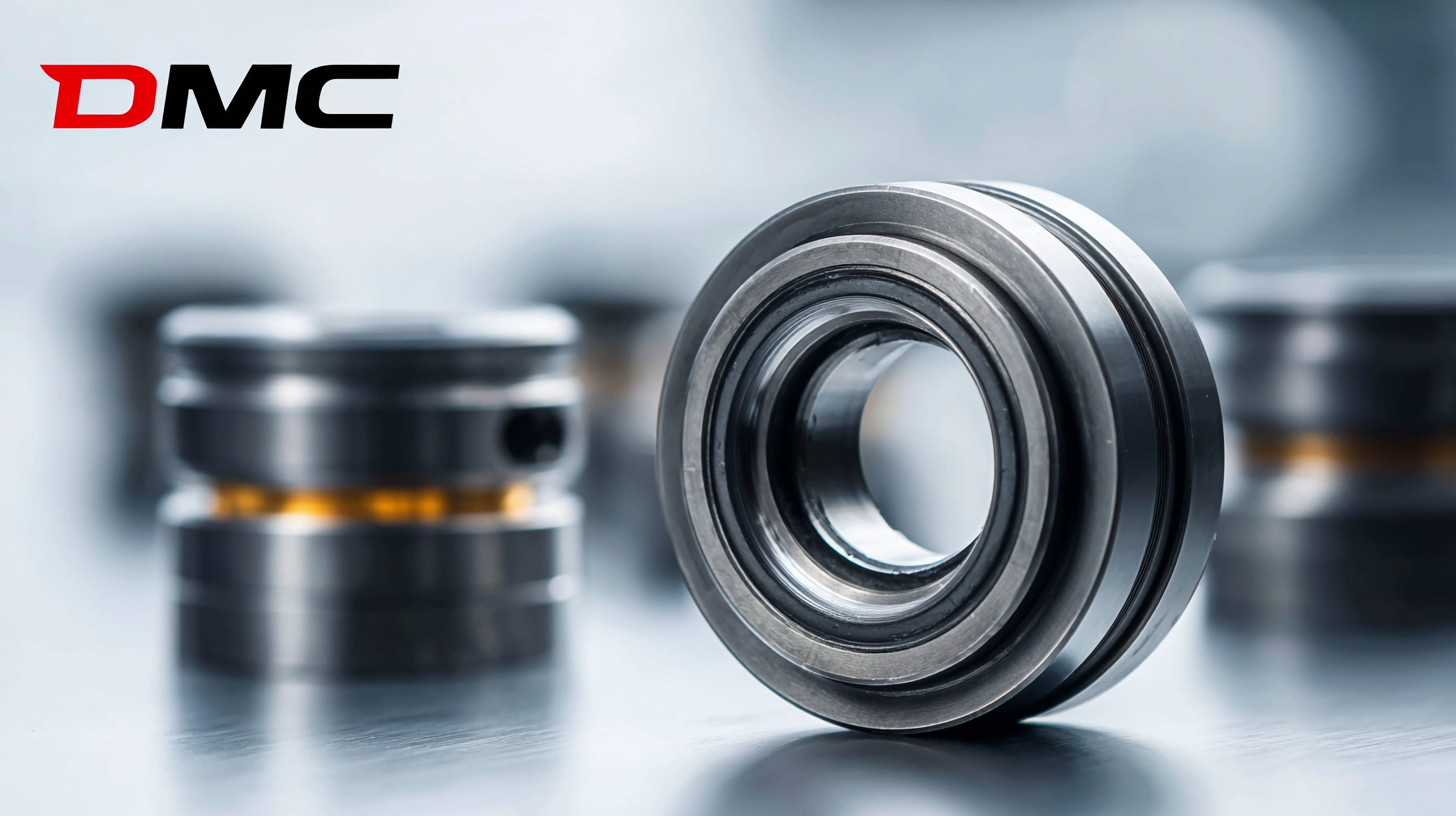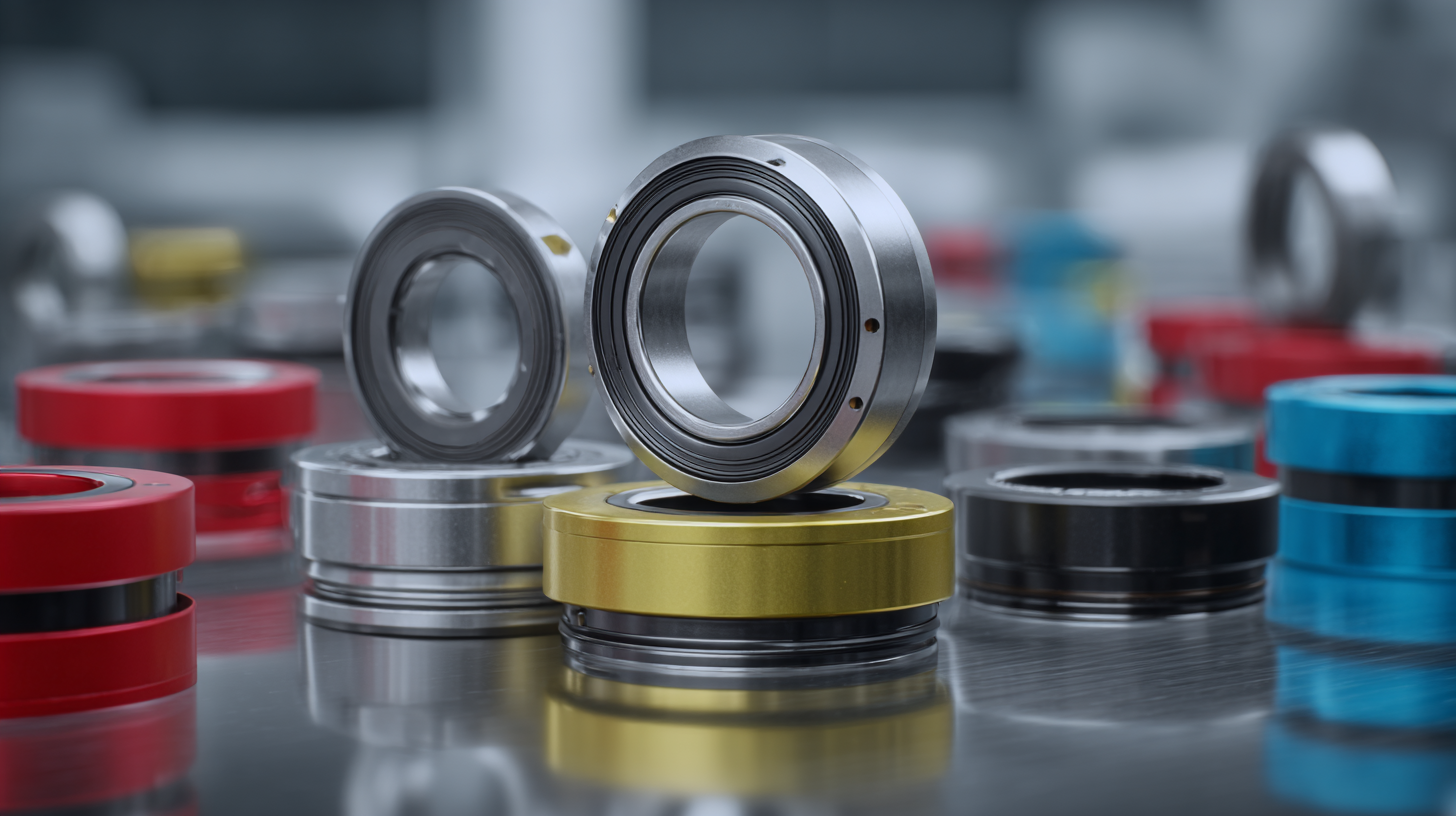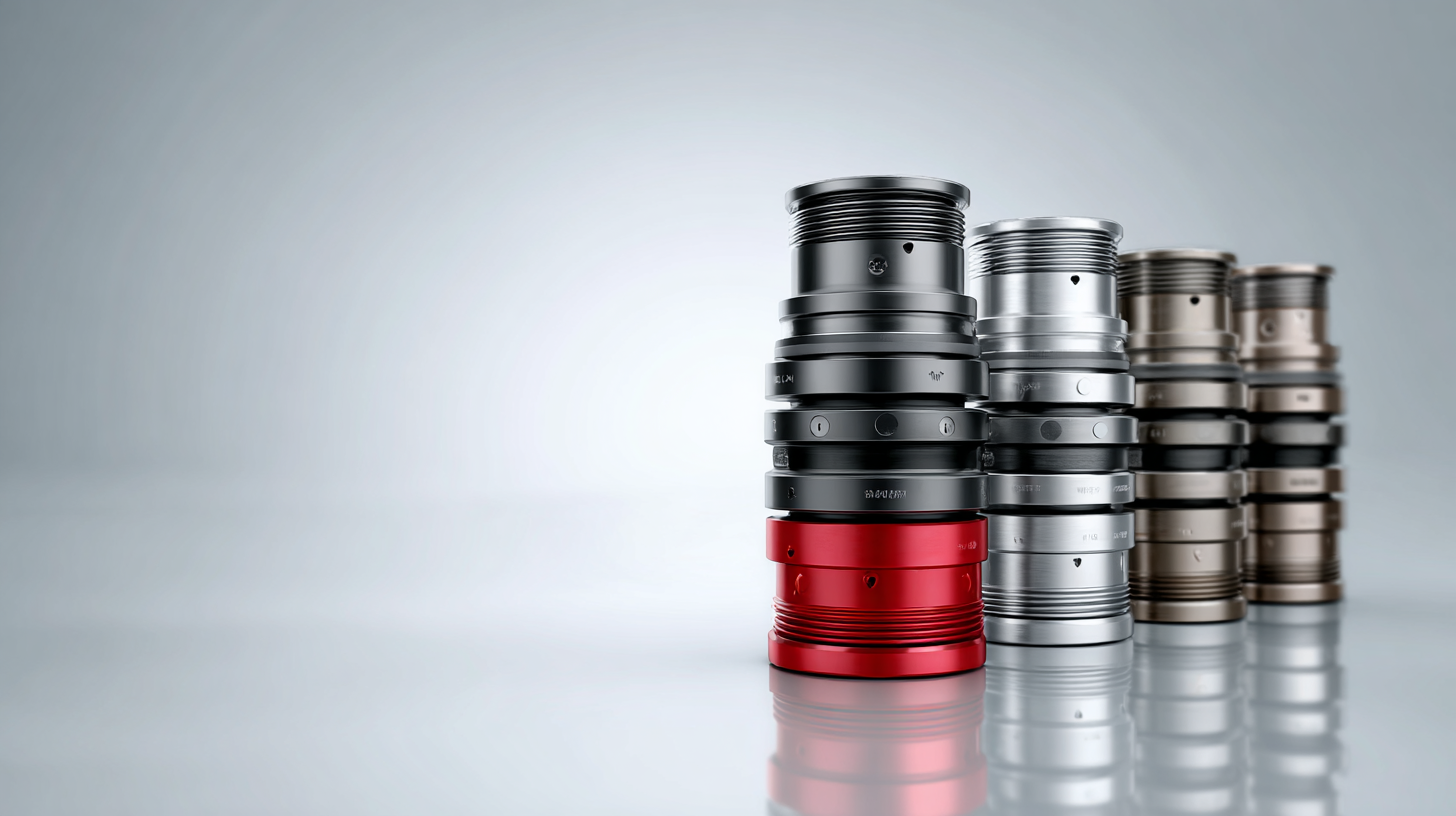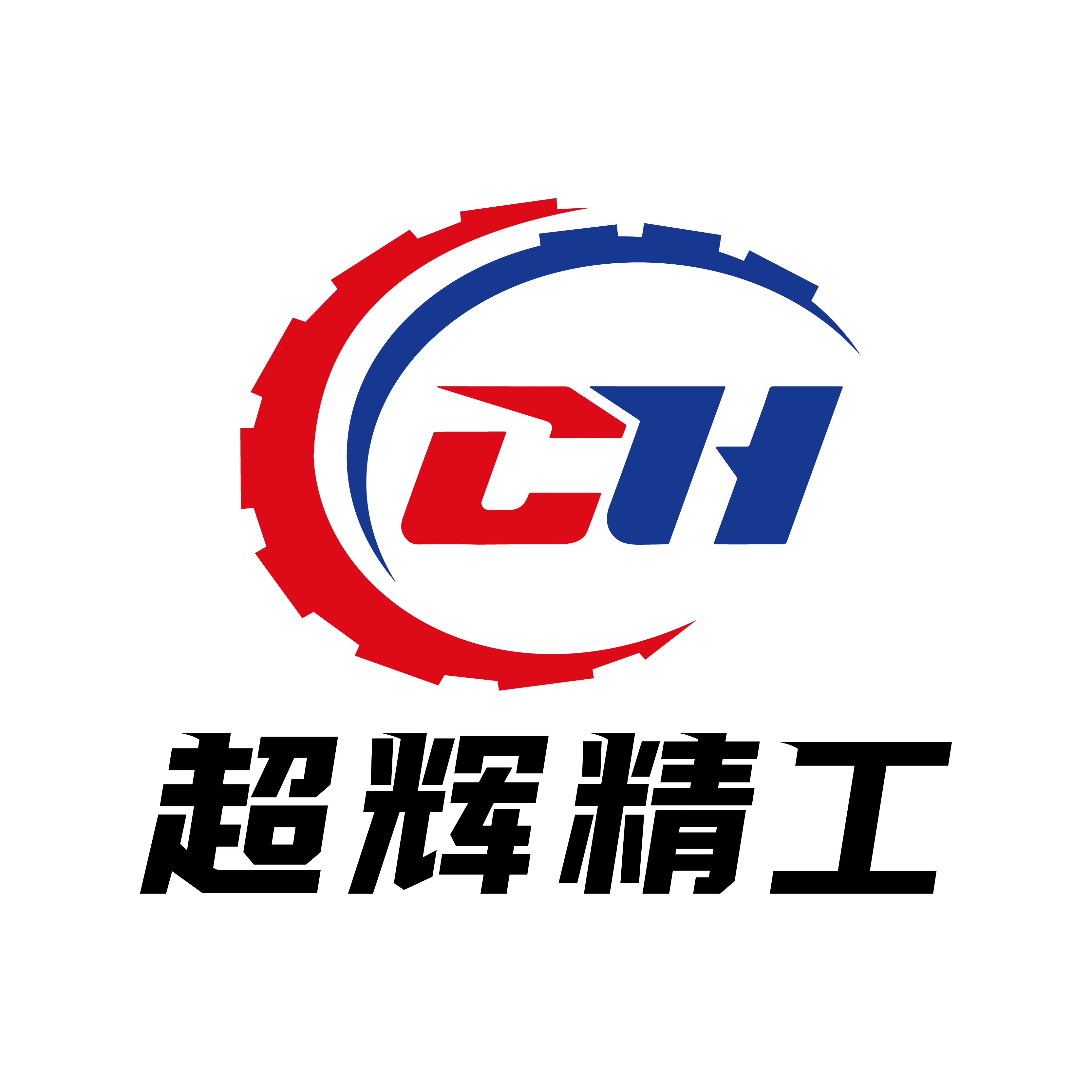In an era where automation and efficiency are paramount, the role of pneumatic seals in industrial applications cannot be overstated. According to a recent report by MarketsandMarkets, the global pneumatic seals market is projected to reach USD 2.5 billion by 2025, reflecting a compound annual growth rate (CAGR) of 4.1%. This growth underscores the increasing reliance on quality pneumatic seals to ensure optimal performance, cost-effectiveness, and longevity in various machinery and equipment. As manufacturers seek to streamline procurement processes, understanding the intricacies involved in selecting the right pneumatic seal manufacturers becomes crucial.

This blog will delve into essential insights and practical solutions that equip procurement professionals with the knowledge needed to make informed decisions, ultimately enhancing operational efficiency and product reliability in their enterprises.
When it comes to pneumatic seals, the role of quality cannot be overstated. These components are crucial in maintaining the efficiency and reliability of pneumatic systems, which are widely used across various industries. High-quality seals ensure optimal performance and prevent leaks that can lead to costly downtimes and inefficient operations. Therefore, understanding the significance of quality in pneumatic seals is essential for any procurement strategy.
Manufacturers who prioritize quality assurance in their processes often utilize advanced materials and rigorous testing protocols. This commitment not only enhances the durability and longevity of the seals but also reduces the risk of failure in challenging environments. Investing in quality pneumatic seals provides long-term benefits, including reduced maintenance costs and improved system functionality. When selecting manufacturers, it is vital to consider their reputation for quality and the innovative materials they employ in their seal production.
| Manufacturer Type | Material Quality | Testing Standards | Lead Time (Days) | Warranty Period (Years) | Customer Satisfaction Rating (1-5) |
|---|---|---|---|---|---|
| OEM | High-grade Rubber | ISO 9001 | 14 | 3 | 4.5 |
| Custom Manufacturer | Silicone | ASTM D412 | 21 | 5 | 4.8 |
| Bulk Supplier | Nitrile | SAE J200 | 7 | 2 | 3.9 |
| Local Distributor | Fluoroelastomer | DIN 53 524 | 10 | 4 | 4.3 |
When it comes to choosing a pneumatic seal manufacturer, evaluating key features is crucial to ensure you’re making the right investment. First and foremost, consider the manufacturer’s reputation and experience in the industry. Companies with a long-standing history often have proven tracks, showcasing their ability to meet diverse client needs. Look for certifications and testimonials that highlight their commitment to quality and customer satisfaction. A reliable manufacturer not only delivers consistent products but also offers excellent technical support and service.

China’s manufacturing landscape has drastically transformed the global pneumatic seal market. The country has developed into a powerhouse for producing high-quality seals that cater to various industries. This shift has not only boosted the availability of pneumatic seals but has also led to increased competition among manufacturers, benefiting consumers with better prices and options. However, companies must remain vigilant in choosing the right suppliers to ensure they meet quality standards and deliver reliable products.
**Tips**: When selecting a pneumatic seal manufacturer, prioritize those with ISO certifications, as these standards indicate compliance with internationally recognized quality management systems. Additionally, assessing customer reviews and testimonials can offer insights into the manufacturer's reputation and product performance.
The rise of Chinese manufacturing emphasizes the need for diligence in procurement decisions. Engaging with suppliers who demonstrate transparency in their production processes and have a proven track record can mitigate risks associated with subpar products. Forming partnerships with manufacturers that invest in technology and innovation can enhance your procurement strategy, ensuring that you remain competitive in an ever-evolving market.
When procuring pneumatic seals, understanding effective strategies is crucial for ensuring quality and performance. First, it's essential to evaluate potential manufacturers based on their market reputation and product offerings. As the hydraulic pump industry in China shows a steady rise in domestic companies' market share, selecting a manufacturer that has demonstrated excellence in similar applications can provide confidence in the reliability of their pneumatic seals.

Tip: Always request samples to test for compatibility and performance in your specific application before making bulk purchases. This can help mitigate risks and ensure that the seals will meet your operational demands.
Additionally, consider the manufacturer's customer support and after-sales service. Strong communication channels and a commitment to customer satisfaction can significantly influence your procurement experience. Especially in industries reliant on hydraulic systems, having accessible technical support can resolve issues swiftly and maintain productivity.
Tip: Establish a relationship with your supplier by discussing your long-term needs and any potential projects. This can lead to better pricing and service options as you build trust over time.
When selecting pneumatic seal manufacturers, understanding quality control standards is paramount. The manufacturing process of pneumatic seals involves various stages where meticulous attention to detail can significantly impact performance and longevity. Manufacturers should adhere to international quality standards, such as ISO 9001, which ensures a systematic approach to quality management and continual improvement. This framework not only fosters the production of reliable seals but also ensures that manufacturers can consistently meet customer expectations and industry requirements.
Moreover, evaluating the testing protocols employed by manufacturers can provide insights into their commitment to quality. Rigorous testing for factors such as pressure tolerance, temperature resilience, and chemical compatibility is essential in confirming that the seals will perform effectively in their intended applications. By prioritizing manufacturers that incorporate advanced testing methodologies, such as Finite Element Analysis (FEA) or real-time monitoring during production, buyers can mitigate risks associated with seal failure and enhance the reliability of their pneumatic systems. This level of diligence in assessing quality standards can lead to more informed procurement decisions and a stronger overall performance for pneumatic applications.
